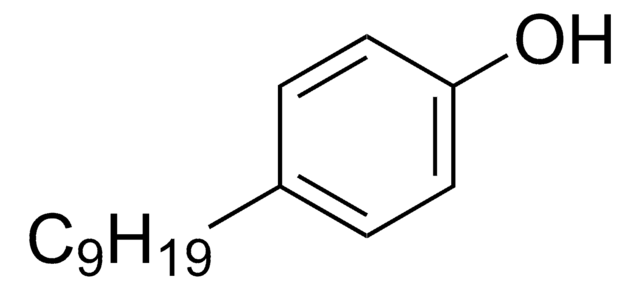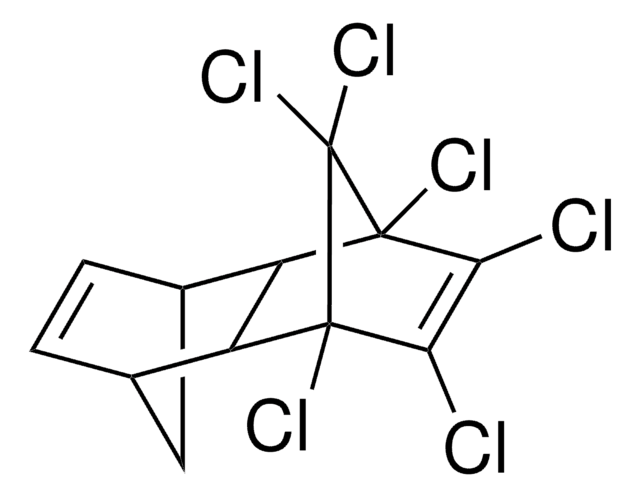Key Documents
32467
4-tert-Octylphenol solution
1000 μg/mL in acetone, analytical standard
Synonim(y):
4-(1,1,3,3-Tetramethylbutyl)phenol solution
About This Item
Polecane produkty
klasa czystości
analytical standard
Poziom jakości
okres trwałości
limited shelf life, expiry date on the label
stężenie
1000 μg/mL in acetone
metody
HPLC: suitable
gas chromatography (GC): suitable
Zastosowanie
environmental
format
single component solution
temp. przechowywania
−20°C
ciąg SMILES
CC(C)(C)CC(C)(C)c1ccc(O)cc1
InChI
1S/C14H22O/c1-13(2,3)10-14(4,5)11-6-8-12(15)9-7-11/h6-9,15H,10H2,1-5H3
Klucz InChI
ISAVYTVYFVQUDY-UHFFFAOYSA-N
Szukasz podobnych produktów? Odwiedź Przewodnik dotyczący porównywania produktów
Opis ogólny
Zastosowanie
- Human biological samples and water samples by stir bar sorptive extraction (SBSE) and thermal desorption–gas chromatography-mass spectrometry (TD-GC-MS) operating in the selected ion monitoring (SIM) mode of detection.
- Surface water samples by GC-MS with SIM detection.
produkt powiązany
Hasło ostrzegawcze
Danger
Zwroty wskazujące rodzaj zagrożenia
Zwroty wskazujące środki ostrożności
Klasyfikacja zagrożeń
Eye Irrit. 2 - Flam. Liq. 2 - STOT SE 3
Organy docelowe
Central nervous system
Zagrożenia dodatkowe
Kod klasy składowania
3 - Flammable liquids
Klasa zagrożenia wodnego (WGK)
WGK 2
Temperatura zapłonu (°F)
1.4 °F - closed cup
Temperatura zapłonu (°C)
-17.0 °C - closed cup
Wybierz jedną z najnowszych wersji:
Masz już ten produkt?
Dokumenty związane z niedawno zakupionymi produktami zostały zamieszczone w Bibliotece dokumentów.
Nasz zespół naukowców ma doświadczenie we wszystkich obszarach badań, w tym w naukach przyrodniczych, materiałoznawstwie, syntezie chemicznej, chromatografii, analityce i wielu innych dziedzinach.
Skontaktuj się z zespołem ds. pomocy technicznej







